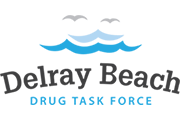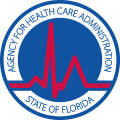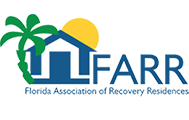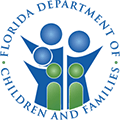Anxiety disorders have the potential to cause a great deal of distress in the lives of sufferers, and when these disorders are compounded by a co-occurring substance abuse problem, that distress can significantly intensify. Individuals who are battling anxiety disorders frequently experience disturbances in their ability to function as their symptoms overpower their ability to rationally process through daily occurrences.
Learn About Co-Occurring Anxiety Treatment
Learn about co-occurring anxiety treatment at Wellness Resource Center in Boca Raton, FL
The symptoms that affect individuals who suffer from these disorders will vary depending on the specific type of anxiety disorder that they are suffering from, but the sense of powerlessness that sufferers of these disorders often feel over their symptoms is enough to make them feel helpless to change and hopeless about their futures. At Wellness Resource Center, we recognize how all-consuming anxiety symptoms can be, and we understand how substance abuse can cause those symptoms to worsen. For this reason, we have developed rehab that specializes in treating dual diagnosis concerns so that those who come to us for care can rediscover a healthier, happier, and brighter future.
Helping a Loved One
Helping a Loved One or Family Member Enter Anxiety Treatment
Having a family member or loved one who is suffering from an anxiety disorder can be extremely distressing. You have likely watched your loved one struggle to function each day as his or her symptoms suppress his or her ability to live a full and productive life. If your loved one is simultaneously battling an addiction to drugs or alcohol, you may also be feeling extremely concerned as to what will happen if that behavior does not end. While you know your loved one would benefit from rehab, you may be unsure as to what role, if any, you should play in helping to jumpstart that process. It is important to know that the more encouraging and supportive you are, the more open your loved one might be to receiving rehab. Consider the following:
- Learn all that you can about anxiety disorders, becoming familiar with the specific type of anxiety disorder that your loved one is suffering from. Also, research dual diagnosis concerns so that you can come to understand the compounded issues that can arise when someone is suffering from both addiction and anxiety.
- Research rehab centers that specialize in treating dual diagnoses.
- Have an open conversation with your loved one where you express your concerns and go over the potential rehab options that you have discovered during your research.
- Assist your loved one in initiating the treatment process by offering to make calls to various rehab centers and then offer to accompany him or her to any appointments that may be scheduled.
- Once your loved one has become engaged in rehab, talk with his or her treatment provider to find out ways that you can be an active part of the therapeutic process.
- Demonstrate unwavering encouragement and support to your loved one throughout his or her entire recovery journey.
Why Consider Us?
Why Consider Anxiety Treatment at Wellness Resource Center in Boca Raton, FL
When individuals are suffering from an anxiety disorder and do not receive treatment, they are vulnerable to experiencing a number of unpleasant consequences, including social withdrawal, a deteriorating self-esteem, the development of self-harming behaviors, and suicidal ideation. When these individuals are also suffering from a co-occurring substance use disorder, they are then also susceptible to experiencing a number of detrimental health effects as well. Depending on the particular substance that they are abusing, these effects will vary, but may include liver disease, heart problems, kidney damage, or a weakened immune system. However, by taking part in appropriate treatment interventions, these negative consequences can be avoided.
Types of Treatment
Types of Anxiety Treatment Offered at Wellness Resource Center
Wellness is a private rehab center that is dedicated to promoting the health and wellness of individuals who are suffering from addiction and co-occurring mental health conditions, including anxiety disorders. Recognizing that the compounded issues that arise as the result of dual diagnosis substance abuse concerns and mental health disorders can cause monumental disturbances in individuals’ lives, Wellness is proud to offer a comprehensive, individualized, and integrative approach to rehab that is tailored to meet our clients’ unique needs. Our goal with each client is to assist in a process of internalizing hope and motivation for recovery, while helping them develop a concrete plan for maintaining and moving beyond the gains they make while in rehab.
At Wellness Resource Center, treatment begins in Phase I, which is our day and night treatment program with community housing. Also referred to as our partial hospitalization program (PHP), clients in this program are exposed to a daylong schedule of treatment activities eight hours a day, five days per week. The goals of this level of care are vast and include the following:
- Helping clients to understand the relationship between their presenting issues and problems that have arisen in their lives
- Assisting clients in identifying specific behaviors and tendencies that have promoted or could promote relapse
- Guiding clients as they build skills that can be successfully maintained after returning to the community
- Helping clients learn how to manage challenges (emotional, family, social, etc.) that continue to interfere with healthy living
Phase I of treatment is supported by caring and compassionate staff members 24 hours a day, 7 days a week. This phase is designed to promote daily living activities while also implementing intensive therapeutic interventions as clients work to manage the symptoms that result from anxiety disorders. During a client’s stay at Wellness Resource Center, the following may be included into his or her treatment plan:
Medication management: When people are suffering from anxiety disorders, certain psychotropic medications can be extremely beneficial at helping to alleviate the distressing symptoms they experience. The use of any medication, however, will be determined based on an individual’s specific needs, on a case-by-case basis. Clients will meet with a psychiatrist at a minimum of once per week in order to monitor any medication that has been prescribed, as well as to make any changes that may be necessary.
Individual therapy: Clients meet with their primary therapists at least once each week for individual therapy sessions, with additional sessions being added on an as-needed basis. During these sessions, clients have the opportunity to meet privately with their therapists in order to discuss how their rehab is progressing and to discuss any problems or concerns that they may have.
Group therapy: Group therapy is the central component to rehab at our treatment center. Groups meet 5 days a week, with between 3 and 4 different groups being held each day. Group therapy is an exceptional way for clients to explore their commonalities and has proven to be a vital avenue for helping clients to gain insight, ultimately assisting them in making positive changes in their daily lives. The various types of groups that clients can expect to take part in during programming include:
- Process groups
- Psychoeducational groups
- Experiential groups
- Gender-specific groups
- Age-specific groups
Within these groups, a variety of different topics will be discussed, including coping skills, trauma, body image, goal-setting, and relapse prevention, amongst countless others.
Family therapy: Family therapy sessions are offered to clients and their family members when deemed clinically appropriate to helping a client successfully progress in rehab. Family therapy commonly takes place on our campus in Boca Raton, FL. If family members are unable to be physically present for any scheduled family sessions, Wellness Resource Center will reach out via telephone contact, conference calls, and written communication in order to ensure that they are kept informed of their loved one’s progress in rehab.
Experiential therapy: At Wellness, we believe that a holistic approach to rehab is crucial when treating those suffering from addiction and co-occurring anxiety disorders. In order to do this, we are pleased to offer a number of experiential therapies that clients may engage in during their time in treatment. Clients’ time spent participating in experiential therapies will vary, however, as all treatment is tailored to meet each individual’s unique set of needs. Examples of the experiential therapies offered as part of programming at Wellness include:
- Equine therapy (on an ancillary extra cost basis)
- Adventure activities
- Teamwork activities
- Communication-based activities
- Social activities
- Labyrinth
- Psychodrama
Family Program: When individuals are battling anxiety disorders, it does not only affect them, but it affects their family members as well. Keeping this in mind, Wellness Resource Center is immensely proud to offer our Family Program at no additional costs to clients or their families. This program meets every other month and provides psychoeducation for our clients’ family members, while also giving them the opportunity to participate in process groups that aim to help them understand the importance of communication in regards to their loved one’s recovery.
After completing treatment in Phase I, clients may step-down to the programming offered in Phase II. Phase II is an extended care option that is offered through our intensive outpatient program (IOP). In this phase of programming, clients may continue living in our client housing, attend treatment part-time, and then receive intensive case management while beginning to look for employment. Following Phase II is Phase III of treatment, which may be recommended for some clients. During this phase, clients are provided with long-term supported sober living.
This thorough and seamless extended care continuum truly makes our rehab center stand out as an exceptional provider of care for substance abuse and co-occurring anxiety disorders. Clients’ lengths of stays are not limited and in order to ensure that clients receive consistent, continuous care from their time of admission until they leave and beyond, staffing remains consistent throughout the continuum of care.












